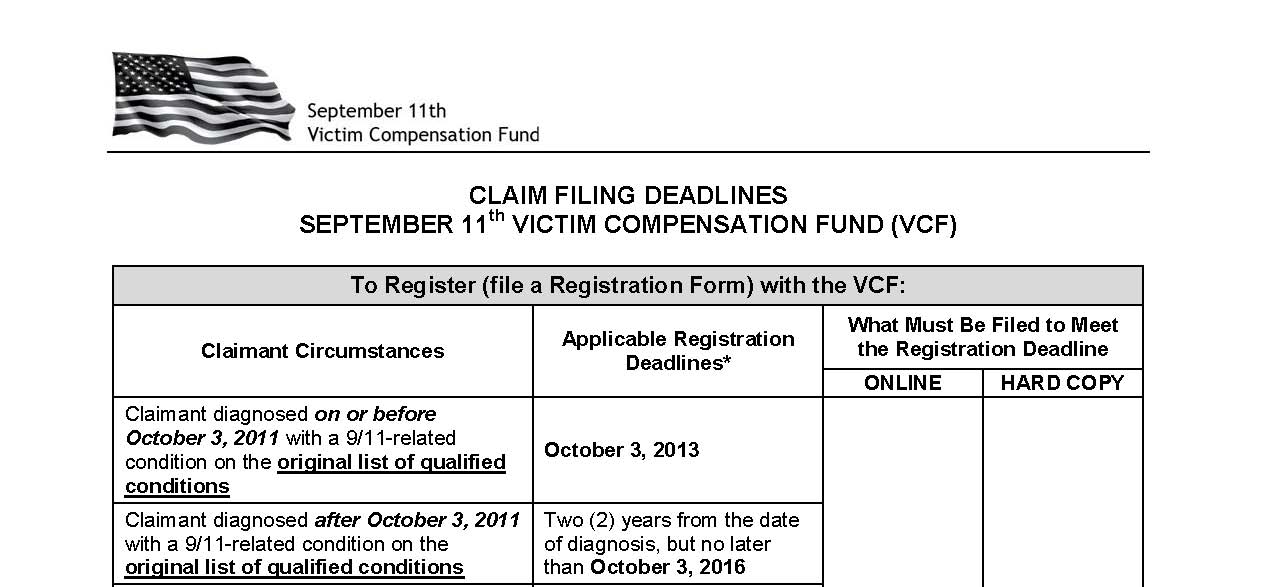Mt. Sinai Researchers Study Link Between 9/11 Exposure, Heart and Kidney Disease
911 Cancer Fund lawyers and advocates were interested to learn that researchers have received $1.1 million from the World Trade Center Health Program (WTCHP) to investigate the link between inhalation of toxic dust and smoke on 9/11 and kidney and heart disease among first responders. The WTCHP, established by the Zadroga Act, treats many responders and survivors who suffer from conditions and cancers related to the heart and the kidney, but these diseases are not currently on the list of certified and covered conditions.
The two year study is being conducted at Icahn School of Medicine at Mount Sinai and is headed by Dr. Mary Ann McLaughlin. Researchers will study 550 first responders who were exposed to heavy amounts of toxins on 9/11. Rescue and recovery responders have already shown higher levels of albumin in their urine—a protein that can signal renal damage, which can cause both heart and kidney disease.
Heart and Kidney Disease Among 9/11 First Responders
It is well established that pollution increases the risk of heart attacks, and in the aftermath of 9/11, responders were trapped in a thick cloud of jet fuel, asbestos, silica, cement dust, glass fibers and heavy metals. Furthermore, doctors have already noted that obstructive sleep apnea and PTSD can impact cardiovascular health among first responders. Thus, a study of heart disease among first responders is very appropriate as time goes on and many more individuals report illnesses related to the heart.
A preliminary study demonstrated that responders with the heaviest levels of exposure also have higher levels of protein in their urine—indicating a condition linked to kidney diseases. This is surprisingly the first study of its kind. Dr. McLaughlin stated that she frequently receives emails, “from people who have been diagnosed with bad kidney disease after 9/11 and the question is, ‘Is this a link or is it just random?’” (nbcnewyork.com).
Additional Conditions and the 911 Cancer Fund
If a connection between 9/11 exposure and these diseases is established, will heart and kidney disease become certified conditions that rescue, recovery workers and 9/11 survivors can be treated for by the WTCHP? And furthermore, will they be eligible for compensation under the Zadroga Act? This is a concern among many 911 Cancer Fund attorneys and advocates who represent responders and survivors who are just now being diagnosed with 9/11 related conditions and cancers.
The WTCHP treats hundreds of 9/11 responders and survivors for cancer and other conditions and the 911 Cancer Fund compensates these individuals for the losses related to the conditions. However, the Zadroga Act is set to expire in 2015, and if the Act is not reauthorized, this free treatment and access to compensation will not be available to those who have suffered from heart and kidney disease as a result of their 9/11 exposure.
Over $200 Million Collected for Cancer Victims
$2,085,599.00 Award for Family of Lower Manhattan Insurance Executive diagnosed with lung cancer
$1,867,195.10 Award for Lower Manhattan Financial Industry worker diagnosed with disabling cancer, preventing him from continuing his work
Get a Free Consultation
Satisfied Clients’ Praise
“Excellent Advice and Timely Response”
“From start to finish, Borri Law provided excellent advice and timely response to all my questions and concerns; and most important I was successful in getting compensation. I would not hesitate to use them again."— Mike B. – Lake Worth, FL
Office Worker in Financial Industry – 9/11 Victim
Peer-rated AV, Very Highest in Ethical and Highest Level of Professional Excellence by the most respected legal rating service, 140 year-old Martindale-Hubbell legal directory

9/11 Cancer News
- 9/11 Uterine/Endometrial Cancer Victims Entitled to Compensation from Victim Compensation Fund
- 9/11 Colon Cancer Victims Entitled to Compensation
- 9/11 Prostate Cancer Victims Entitled To Compensation
- How Do You Know If Your Cancer Is Caused By 9/11 Dust and Fumes?
- 9/11 Hodgkin Lymphoma Victims Eligible for Compensation


